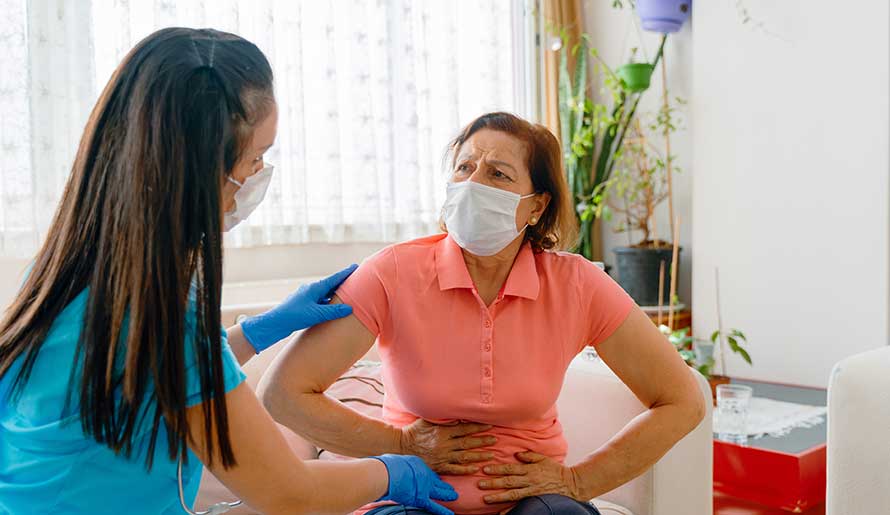Stomach Cancer Signs and Symptoms

Stomach cancer (gastric cancer) is a tumor that originates in the lining of the stomach, a hollow, muscular organ in the upper abdomen that digests food. Usually, the cancer begins as a cluster of abnormal cells that progress and form a tumor in the stomach’s mucosal layer, often at the place where the stomach meets the esophagus (gastroesophageal junction).
In the United States, stomach cancer is fairly uncommon and cases have steadily declined over the last several decades. Experts attribute this trend partially to people eating less salted and smoked foods. Both are known risk factors for stomach cancer.
Symptoms of stomach cancer
Typically, early-stage stomach cancer does not produce noticeable symptoms. As the cancer advances, the first signs are often vague and mild, such as heartburn and indigestion.
Because the early warning signs of stomach cancer are also associated with several more common and less serious conditions, such as stomach flu (gastroenteritis), ulcers and irritable bowel syndrome (IBS), it is important to promptly discuss any unusual changes with a physician, especially if the symptoms persist or worsen.
In addition to heartburn and indigestion, other symptoms of stomach cancer can include:
- Abdominal pain or discomfort, usually above the navel
- Loss of appetite
- Difficulty swallowing
- Nausea and vomiting
What does stomach cancer feel like?
Depending on the location and size of the tumor, a physician may be able to feel a mass in the stomach when performing a physical examination. More often, though, the symptoms that can be felt involve sensations in the stomach, such as bloating and fullness (satiety) after a small meal. Some people also describe a sensation of food getting stuck in their throat when eating and swallowing.
What does stomach cancer look like?
In some cases, stomach cancer causes bloody or blackened stools.
Advanced symptoms of stomach cancer
As stomach cancer progresses, the symptoms may become more severe and include:
- Overwhelming weakness and fatigue
- Unexplained weight loss
Additionally, if stomach cancer spreads (metastasizes) to distant organs or tissues, it can cause other symptoms specific to the part of the body affected. For instance, if stomach cancer spreads to the lungs, it can cause difficulty breathing, shortness of breath and coughing.
Frequently asked questions (FAQs) about stomach cancer signs and symptoms
The following FAQs-related articles provide additional information about the signs and symptoms of stomach cancer:
- Can stomach cancer go undetected?
- How long can stomach cancer go undetected?
- Are my symptoms indicating stomach cancer or something else?
- What are the most common metastatic stomach cancer symptoms?
Benefit from world-class care at Moffitt Cancer Center
Moffitt’s renowned Gastrointestinal Oncology Program is led by a multispecialty team that specializes in all aspects of stomach cancer care, including diagnosis, treatment and support. Designated a Comprehensive Cancer Center by the National Cancer Institute, Moffitt offers progressive stomach cancer treatment options and spearheads innovative clinical trials to continually improve the way stomach tumors are diagnosed and treated. As a high-volume cancer center with specialists who focus exclusively on gastrointestinal malignancies, we address all types of stomach cancer, including rare and complex forms.
If you would like to discuss your stomach cancer symptoms with a specialist at Moffitt, you can request an appointment by calling 1-888-663-3488 or completing a new patient registration form online. We do not require referrals.
